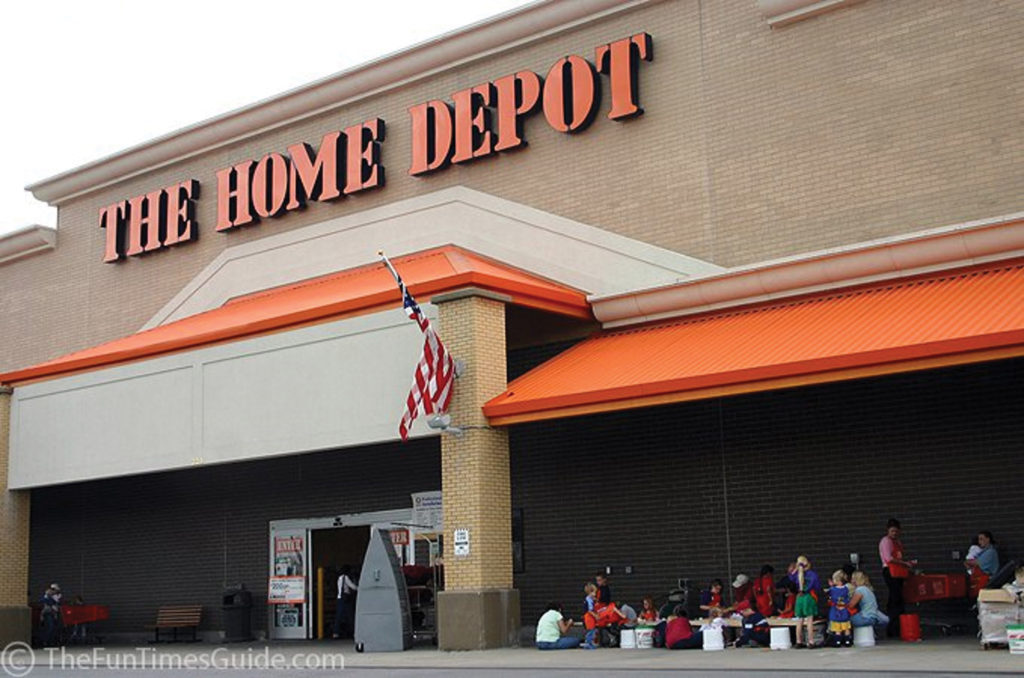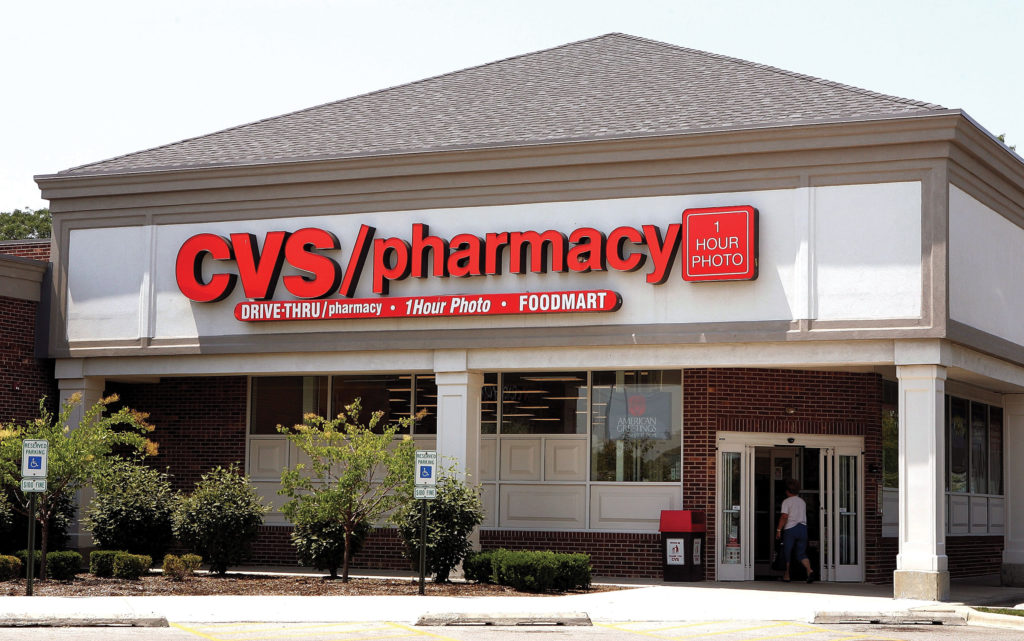Top U.S. Employers Wage Drug Coupon War
 As two of the top 10 U.S. employers, Walmart and Home Depot have long been frustrated by high insurance costs for their thousands of employees. Now they are executing an insurance strategy to punish pharma companies for dishing out copay discount cards and coupons that encourage patients to stick with high-price, brand-name treatments and drive up health plan costs. The retailers are now tightly managing how employees and their family members use these popular discount or copay cards, hoping to encourage patients to seek less expensive treatments via programs, known as copay “accumulators” and copay “maximizers.”
As two of the top 10 U.S. employers, Walmart and Home Depot have long been frustrated by high insurance costs for their thousands of employees. Now they are executing an insurance strategy to punish pharma companies for dishing out copay discount cards and coupons that encourage patients to stick with high-price, brand-name treatments and drive up health plan costs. The retailers are now tightly managing how employees and their family members use these popular discount or copay cards, hoping to encourage patients to seek less expensive treatments via programs, known as copay “accumulators” and copay “maximizers.”
Home Depot, which has 400,000 employees, says their CVS-run copay control program affects fewer than 1% of its plan members who need specialty therapies for cystic fibrosis, hepatitis C, cancer, HIV, psoriasis, pulmonary arterial hypertension, and hyperlipidemia, or extremely high cholesterol. The same 1% have an outsized impact on spending because of how costly it is to treat their specialty conditions. Now, employers who use the most comprehensive program at CVS can save up to 7% on their total specialty medication costs, according to CVS. Express Scripts has enacted much the same type of program on Walmart’s behalf with added aggressive hepatitis C, oral oncology drugs, and hereditary angioedema treatments.
Accumulators and Maximizers
The 170 million Americans insured by their employers pay a portion of their prescriptions, a tactic that companies say keeps their workers aware of rising drug prices so they can switch to cheaper alternatives when possible. To bypass this tactic, drug manufacturers distribute coupon cards that allow patients to pay a small amount towards their drugs while they cover the remainder of the copay owed to the insurance company—costing the pharma industry $7 billion over the past five years. Now accumulators and maximizers are changing this system. Accumulators recognize when an employee uses a drug maker discount card and excludes that money from their annual out-of-pocket spending requirement. When the copay card runs out of money, the patient must either cover the full copay cost, get a new discount card, or stop filling the prescription. Maximizers apply to a small list of drugs, requiring patients to register for copay cards from the manufacturers. These then raise the patient’s required copayment to tap the discount cards for the maximum amount set by a drug maker, which Reuters claims can be more than $10,000 annually for some drugs.
Some say this could hurt pharma’s bottom line, with the copay accumulator and maximizer approach spreading from 25% of U.S. employers to 50% in the next two years, according to the National Business Group on Health. “The impact on our business is relatively limited, but it is a concern,” says Ruud Dobber, who heads Britain-based AstraZeneca’s U.S. commercial operations. Eli Lilly & Co. also recently admitted that copay accumulator programs were having an impact on its Taltz psoriasis drug and Forteo for osteoporosis, but that it did not feel there was “significant exposure.”
Univision and Amgen Partner to Serve the Hispanic Community

Using its unique and unrivaled brand equity and strength in the Hispanic community, Univision is filling the void of accessible health education for Spanish-speaking patients in the U.S. looking for better health solutions. While many healthcare companies realize the gap in education surrounding diabetes and its comorbidities, they have only taken on this challenge in English, when in fact diabetes affects 13.4% of Mexican Americans as opposed to 10.2% of white and 4.2% of black Americans. As a result, a staggering amount of Latin American patients are underserved and uninformed about serious health conditions and potential prevention and treatment, while therapy providers and healthcare agencies are missing out on a major market opportunity.
Amgen sees the benefits of culturally relevant outreach to a community that Optum Health reports stays on track with treatment 49 days longer and fills prescriptions 20 days sooner than white Americans. Through partnership with Univision, a unique multichannel platform was created for Prolia, its glucocorticoid-induced osteoporosis (GIOP) treatment, a condition that appears as a frequent comorbidity of diabetes.
Targeting Diabetes
The campaign, which aims to heighten awareness and encourage screenings in an underserved community where diabetes is most prevalent, includes the Fuertes Juntos Health Event in East Los Angeles with an attendance of 1800 community members. The event provided free screenings for diabetes and its comorbidities including osteoporosis, vision, feet, and glucose checks, as well as motivational talks from highly influential celebrities in the Hispanic community, including Mexico’s Sweetheart, Angélica María, and radio personality/social influencer, Gabriela Teissier.
Univision acts on what it sees as its responsibility as one of television’s top 5 networks – regardless of language – and #1 Spanish radio networks in the U.S., to provide the Spanish-speaking community with the healthcare information it lacks, but sorely needs. Beyond television and radio ads, Univision pushes awareness, access to care, and early detection/aggressive management of diabetes and osteoporosis with several 30-second educational videos on its extremely active social media platforms.
Cancer-Focused Gene Businesses Join Together
NeoGenomics, the leading cancer-focused genetic testing business, is acquiring specialized hematology and solid tumor testing laboratory Genoptix for $125 million in cash and one million NeoGenomics shares. The acquisition will expand the buyer’s coverage of oncology practices and provide it with helpful relationships to oncology physicians and businesses in the community. “With what we believe to be the most comprehensive oncology test menu in the country—and reach across all distribution channels—the combined company will be uniquely positioned in the oncology test market,” NeoGenomics Chairman and CEO Douglas VanOort said in a statement. Formerly part of Novartis, Genoptix customizes reports for local oncologist practices, an “under-penetrated” channel for NeoGenomics’ more comprehensive liquid biopsy and next-generation sequencing offerings. The acquisition is estimated to add $85 million of revenue.
Medtronic Acquires Nutrino Health Ltd.
The leading med tech company acquired Nutrino with the goal of improving clinical outcomes for people with diabetes. The nutrition-based data provider’s extensive food analysis infrastructure, nutrition science expertise, and artificial intelligence (AI)-driven personalized insights will be integrated with Medtronic’s technology and future innovations. Given that food and nutrition are central components in effective diabetes management, the Diabetes Group at Medtronic will use the company’s expertise and platforms to further innovate diabetes management resources and improve the lives of people with diabetes.
“Bringing Nutrino and their nutrition-related expertise into our organization will give us a substantial differentiator in the diabetes industry and accelerate our progress to help people with diabetes live with greater freedom and better health,” says Hooman Hakami, Executive Vice President and President of the Diabetes Group at Medtronic. The tech giant plans to leverage Nutrino’s developing algorithms and technology for predicting glycemic responses to food as well as its infrastructure with continuous glucose monitoring (CGM) and industry-leading closed loop systems, to help reduce the substantial physical and mental burden of food and nutrition management for people with diabetes.
HealthLink Dimensions and Digilant Offer Programmatic Solutions
Digilant, a programmatic media buying services company, announced that it has joined forces with HealthLink Dimensions to specifically address the demands of healthcare and pharmaceutical marketing executives by offering programmatic power, deterministic physician and healthcare provider data, and insightful and practical analysis from experts.
Raquel Rosenthal, CEO at Digilant, says, “We’ve been delivering programmatic solutions to brands all over the world for more than a decade, and the healthcare category is ripe for digital marketing innovation.” The partners seek to help health marketers pursue innovative initiatives aggressively, but also safely and successfully by effectively embracing all of the available channels and quality data to achieve advertising goals, while also gaining scale and efficiency.
VIVO Moves to Health Tech Hub
The leading technology-focused healthcare agency, VIVO Agency, is making itself a new home in San Diego. The new West Coast base will be fully staffed with account, strategy, and creative departments, ready to meet a burgeoning need in the community. “San Diego is sitting at the center of a revolution in the health tech industry. As one of only a few marketing agencies specializing in health tech, this move positions VIVO to better serve the community while expanding our client base,” Jeff St. Onge, VIVO Agency’s Group Account Director responsible for overseeing the West Coast office, said in a statement. “Being in close proximity to so many health tech companies, we see an opportunity to help health tech companies shift from old sales models that push price and product features to marketing-driven organizations with value-based models focused on patient outcomes.”
CVS/Aetna Deal Includes $40 Million for Insurance Education
 New York state regulators have approved CVS Health’s $69 billion acquisition of Aetna Inc. with certain conditions. One such stipulation requires CVS to hand over $40 million to the state over a three-year period for health insurance education.
New York state regulators have approved CVS Health’s $69 billion acquisition of Aetna Inc. with certain conditions. One such stipulation requires CVS to hand over $40 million to the state over a three-year period for health insurance education.
New York State Department of Financial Services superintendent Maria Vullo announced that CVS ensures, “New Yorkers will not pay to finance this acquisition in insurance premiums, drug prices, or otherwise.” Vullo previously expressed concern that CVS, which had to borrow $40 billion for the acquisition, could raise insurance premiums for millions of residents and increase pharmaceutical costs, data privacy issues, community support, and CVS’ ability to do business statewide “in a manner that serves New York’s communities fairly and equitably, including those communities most in need of access to affordable healthcare services.”
Many of the agreed upon conditions address these concerns, not the least of which is ensuring insurance education that includes “enhanced consumer and health insurance rate protections, privacy controls, cybersecurity compliance, and a $40 million commitment to support health insurance education and enrollment and other consumer health protections,” according to the Department of Financial Services.







